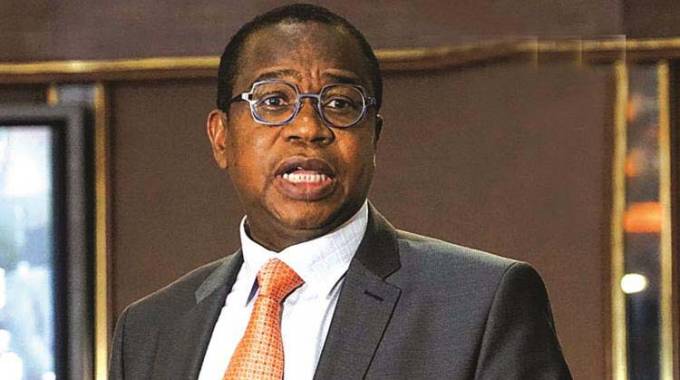
The Sunday Mail

Business Reporter
Finance and Economic Development Minister Professor Mthuli Ncube unveiled a $421,6 billion budget on Thursday as the country moves to spur economic growth under the aegis of the new economic programme, the National Development Strategy 1 (NDS1) — a successor to the Transitional Stabilisation Programme (TSP).
There have, however, been questions of how the budget will be financed, especially as Government expects $390,8 billion to come from locally generated revenues.
Overall, a budget deficit of $30,8 billion is forecast, which would be funded through issuance of bonds and Treasury Bills.
Treasury has already indicated that it would not resort to borrowing from the central bank, as has been the case before the TSP.
Value added tax (VAT), particularly from domestic sales, is expected to contribute the biggest chunk of revenue at $94,8 billion.
Domestic sales are forecast to weigh in with $73,6 billion.
VAT from imported goods would only grow by 34 percent to $26,8 billion, reflecting a cut-back on imports and a continuation of a trend seen in the last couple of months.
Government plans to reduce vehicle imports that are 10 years or older, excluding commercial vehicles.
By removing used vehicles from the open general import licence, it means buyers would need a special import permit.
A good agriculture season — buoyed by forecasts of normal to above-normal rainfall — as well as extended exemptions of duty on raw material imports by fertiliser manufacturers and the dairy sector, among others, would likely drive growth.
With increased use of digital platforms, excise duty on airtime is projected to rise to $9,4 billion, a figure that is 330 percent higher than this year’s expected collections of $2,2 billion.
Corporate tax will chip in with $73,5 billion or 18,81 percent of the total revenue.
The tax head is anticipated to rise by 173 percent from $27 billion.
Informal sector tax
There are plans to tax the informal sector.
Operators based in compartmentalised office spaces such as Gulf Complex would now be required to pay a presumptive tax equivalent to US$30 per unit per month.
Hairdressers, restaurants and bottlestore operators will now pay a presumptive tax of $2 500 and $10 000 respectively..
The informal sector makes significant contributions to the economy, and it is believed that extending tax to this sub-sector would not only generate more revenues but increase tax compliance as well.
As the economy is projected to rebound to 7,4 percent in 2021 from a decline of -4,1 percent this year, the Government is betting on the rise in taxable activities.
As such, personal income tax will bring as much as $72,2 billion, up from $26,6 billion expected this year, notwithstanding the review of tax-free thresholds on salaries to $10 000 from $5 000 from January 1 next year.
What might, however, boost the tax head is Government’s plan to increase employment costs by 145 percent.
Lowest-paid public sector workers are currently earning slightly above $14 000.
The private sector would likely follow suit.
Treasury forecasts that the 2 percent tax would double its contribution to $29 billion.
While amounts below $500 will now be exempted from paying the tax, foreign currency transactions above US$5 are now taxable.
Excise duty, particularly on fuel, will chip in with $60,4 billion.
Minister Ncube increased duty on diesel by US5 cents to match petrol.
A petroleum import duty of US5 cents will now be added to fuel imports that come into the country by road.
Excise duty on beer, tobacco, wines and spirits will more than double.
Excise duty on cigarettes, for example, went up to the equivalent of US$5 per 1 000 cigarettes plus 20 percent of the ex-factory price.
Spirits will now pay 30 percent plus an equivalent of US$1 per litre of absolute alcohol.
At $131,6 billion, capital expenditures will make up 5,5 percent of GDP, while current expenditures are expected to consume $290 billion (12,1 percent of GDP).
The increased allocations to capital expenditure highlight Government’s determination to modernisation through major infrastructural projects.
Before the TSP, current expenditures, particularly Government employment costs, chewed up 90 percent of revenues.
Consistent with the NDS1, investments under the Road Development Programme will be prioritised in 2021, with fiscal resources contributing $24,1 billion.
The 2021 Budget has set aside resources amounting to $1,5 billion towards upgrading of facilities at ports of entry, while an amount of $10,7 billion has been set aside to support ongoing works at various dam projects.



